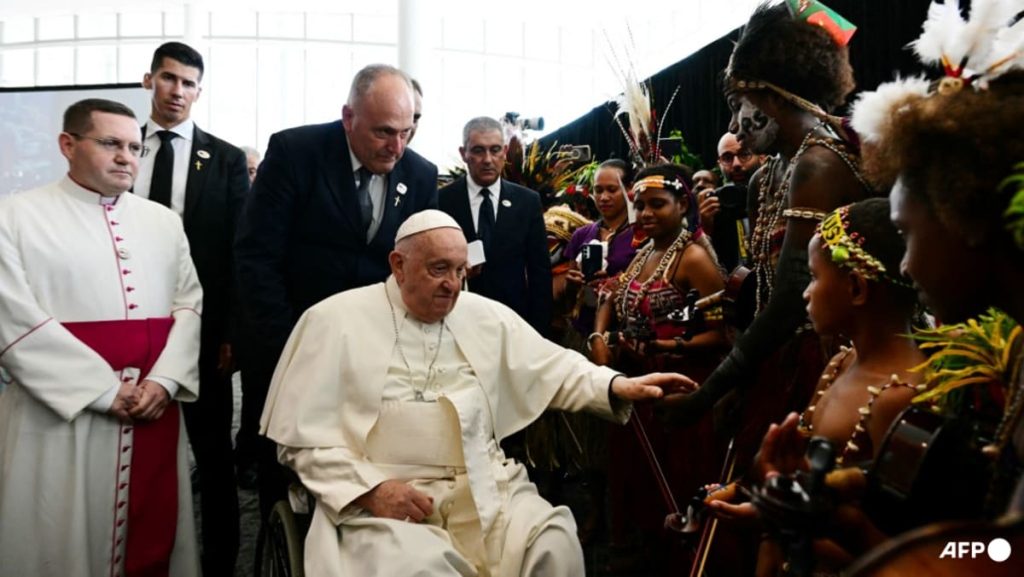During his speech in Papua New Guinea, Pope Francis highlighted the need for better treatment of workers in the country, which is rich in natural resources including gas, gold, and other reserves. He emphasized the importance of considering the needs of local people when distributing the proceeds from these resources and when employing workers to improve their living conditions. The 87-year-old pontiff also called for an end to ethnic violence that has claimed the lives of many in recent months, urging for peace and harmony among the diverse tribal groups and languages in the nation.
Pope Francis stressed that the natural resources of Papua New Guinea are meant for the benefit of the entire community, not just for the enrichment of outside experts and large international companies involved in their exploitation. He called for sustainable development practices that prioritize improving the wellbeing of all individuals in the country, through international cooperation, mutual respect, and agreements that benefit all parties involved. The pope’s message focused on the importance of ensuring that the distribution of wealth and employment opportunities from these resources are fair and equitable for the local population.
Visiting as part of a 12-day trip to four countries, Pope Francis made a strong statement at the APEC Haus, a conference center built for the 2018 Asia-Pacific Economic Cooperation forum meeting. Upon his arrival, he was greeted with a traditional dance performed by Papua New Guineans dressed in ceremonial attire, showcasing the cultural richness of the nation. Despite his physical limitations and use of a wheelchair due to knee and back pain, the pope’s presence at the event emphasized his commitment to addressing key issues affecting the people of Papua New Guinea, including economic disparities, social conflicts, and environmental concerns.
The pontiff’s call for greater respect and consideration for the local population in the exploitation of natural resources resonated with many in Papua New Guinea, where extractive industries often face criticism for their impact on the environment and communities. By advocating for a more inclusive and sustainable approach to resource development, Pope Francis sought to promote dialogue and collaboration among various stakeholders, including government officials, companies, and indigenous groups, to ensure a more equitable distribution of benefits and opportunities for all individuals in the country.
In his speech, Pope Francis highlighted the importance of upholding human dignity and promoting social justice in the economic activities of Papua New Guinea, emphasizing the value of solidarity, compassion, and responsibility in the management of natural resources and labor practices. By addressing issues such as worker treatment, wealth distribution, and ethnic violence, the pope raised awareness of the challenges facing the nation and called for a collective effort to build a more just and inclusive society that respects the rights and needs of all individuals, particularly the most vulnerable and marginalized members of the population.
Overall, Pope Francis’s visit to Papua New Guinea underscored the significance of ethical considerations in economic development and resource management, urging stakeholders to prioritize the common good and address issues of inequality, conflict, and environmental sustainability in their decision-making processes. His message of solidarity and justice resonated with many in the country, inspiring hope for a more equitable and harmonious future for all Papua New Guineans, regardless of their background, ethnicity, or social status. Through his words and actions, the pope encouraged a spirit of cooperation and dialogue that seeks to create a society where every individual is valued and respected, and where the natural wealth of the nation is shared in a fair and responsible manner for the benefit of all.













